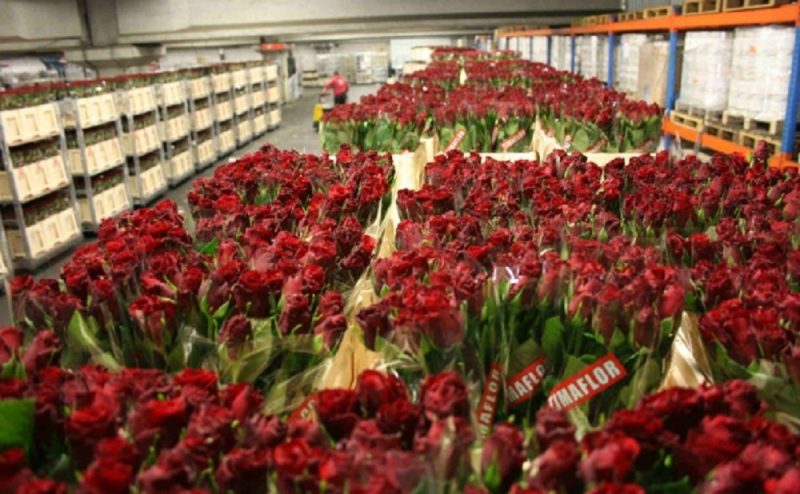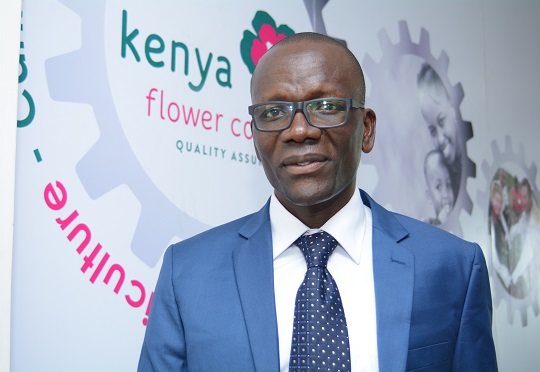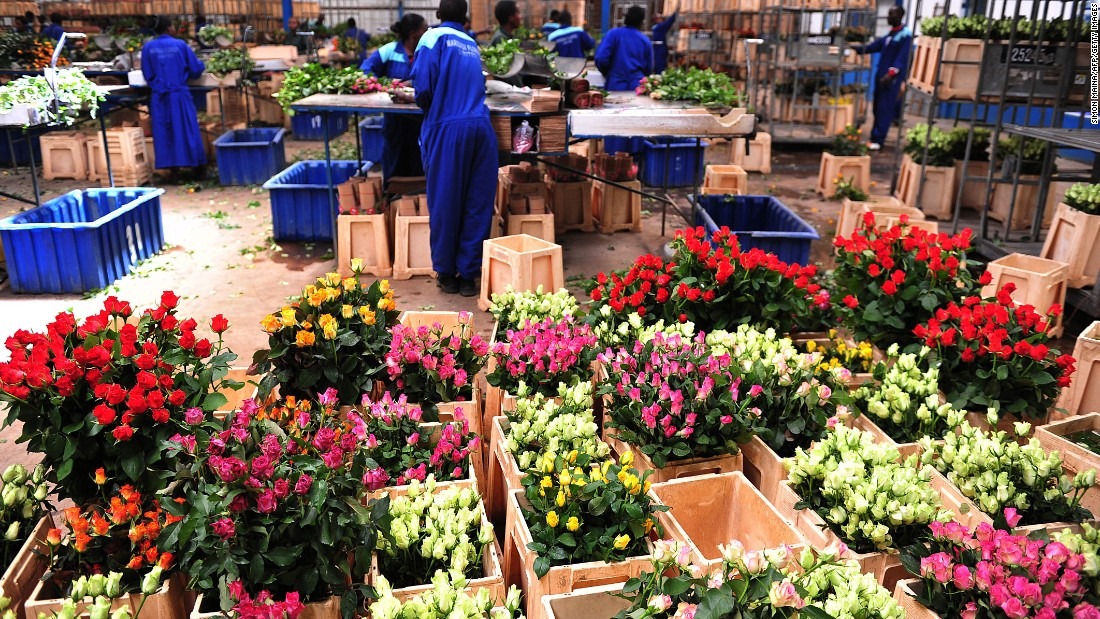The Kenya Flower Council says the industry is already swimming in its ¾ sales boom of the annual Ksh 100 billion sector turnover as Valentine’s Day looms. This is because most of the flower exports, especially red roses, are pre-ordered such that by February 5, most Valentines orders are usually already shipped.
The sales boom is as a result of a celebration of St Valentine’s Day, usually marked on 14th February, each year.
Kenya Flower Council Chief Executive Officer Clement Tulezi says the month of February has always been a great test to the industry in terms of meeting the market demands of flowers, especially the red rose, which is associated with love.
“The red rose is one of our greatest gold this month. People the world over associate it with love and well, being the “Month of Love” as February is commonly referred to, our annual industry bottom-line is reaping from this glory,” Tulezi added.
The sector has continued to blossom and is now almost hitting Ksh 100 billion in value. The flower export values has continued to grow from Ksh 35.50 billion in 2010 to Kh 70.80 billion in 2016, thanks to rising international demands from the Kenyan flower as new markets continue to emerge.
“Kenya remains the third largest exporter of cut flowers in the world and accounts for about 35% of all sales in the European Union markets including Holland, Germany, United Kingdom, Switzerland and France. We have also created in roads in Russia and the US, as well as China, Middle East, Japan and all other emerging markets. Currently, Kenya flowers are sold in more than 60 countries,” said Tulezi.
Approximately 50% of exported flowers are sold through the Dutch Auctions, although direct sales are growing. In the United Kingdom, supermarkets are the main outlets.
The sector employs over 100, 000 people who directly work in the flower farms and culminates to over 2 million Kenyans benefiting from the sector.
The main cut flowers grown in Kenya are roses, carnations, and Alstromeria. Other flowers cultivated include, Gypsophilla, Lilies Eryngiums, arabicum, hypericum, Statice, a range of summer flowers amongst many others.
The Red Rose
A quick survey at multi-million Magana Flowers establishment in Nairobi’s Kikuyu town showed almost zero ready red roses in all greenhouses that occupy about 19 hectares of land.
“We are totally sold out on the red roses because most of our customers pre-order way before February,” says the firm’s Chief Executive Officer Nicholas Ambanya.
He says the Kenyan flower continues to attract the international eye because of its uniqueness in terms of resilience and longer vase-life, thanks to Kenya’s favourable weather ideal for flowers.
A single stem goes for about Ksh 50 on the export market. Magana Flowers harvests about 70,000 stems of flowers on average each day.
Local market
Ambanya however decries the inconsistent and low uptake of flowers locally. He says Kenyans have different priorities in life and having bouquet of flowers regularly is a distant pipe-dream.
“We export 99.9% of our flowers because of ready market internationally. Even the minimal percentage that we sell locally are Grade 2 because Kenyans do not invest in flowers. The sector is so capital-intensive and we have no choice but export our premiums,” Ambanya shared.
The same sentiments were echoed by Doreen Chepkorir of Winchester Farm Limited, a subsidiary of multi-billion Mzurrie Flowers that also owns other three large farms in Nakuru.
READ: Tanzania burns 5,000 chicks imported from Kenya
“Most Kenyans are always drawn between catering for basic needs like food and school fees with buying flowers. Trends show that even those who can afford our premium grade 1 flowers still choose Grade 2. This is unlike the international market where flowers are a daily product on the table,” says Doreen who is the Quality and Standards Manager at the Farm.
The Flower Council is working on measures to increase the local uptake in the spirit of Buy Kenya, Build Kenya. For a start, the Council has reached out to the local Flower Vendors Association so as to collectively discuss issues around the local market and perhaps work on the subsidized costs in the long run.













Leave a comment